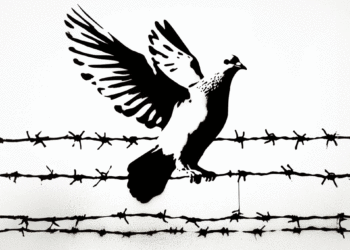Iran has sufficient fissionable material to develop a nuclear weapon and a long-range missile to send that weapon almost anywhere in the region
By YAAKOV KATZ
JERUSALEM, Israel — Imagine the following scenario: Iran announces it will stop enriching uranium, will abide by all of the United Nations resolutions on its nuclear program, and will permit International Atomic Energy Agency inspectors to visit all of its nuclear facilities.
While considering Iran’s past behavior — including the most recent discovery of a secret enrichment facility near the city of Qom — this scenario is tough to imagine, but it may not be all that detached from reality. Earlier this month, Russian Foreign Minister Sergey Lavrov announced that an agreement was in the works between Tehran and six world powers for Russia to enrich uranium for Iran.
If such a deal was struck between the West and Iran, Israel would be left in a difficult position, asking itself whether it can live with an Islamic state — led by a president who has called for the destruction of the Jewish state — as a threshold to nuclear power.
There is no clear-cut answer.
On the one hand, a nuclear Iran — even without weapons — would likely set off a race among other Middle Eastern countries to obtain nuclear power. Egypt and Saudi Arabia view themselves as regional superpowers and would likely not allow their archenemies in Iran to outdo them.
Turkey, a member of NATO, recently passed a bill in parliament paving the way for the construction of three nuclear reactors. Earlier this month, the United Arab Emirates announced plans to also begin conducting nuclear research,
The consequences are clear: an already volatile Middle East would become even more dangerous.
On the other hand, if the deal provides strict safeguards and increased supervision, Israel would have a very difficult time opposing it. The government led by Prime Minister Binyamin Netanyahu would likely not want to be perceived as an obstacle to United States diplomatic resolutions.
This is all possible if a deal is reached with Iran, one that would be lauded by the Obama administration, which is desperately seeking a diplomatic victory, particularly in light of the failure on the North Korean front and the difficulties it is encountering in Iraq and Afghanistan.
But what if the current talks with Iran fail? There are two likely scenarios.
First, the European Union, Russia, the U.S. and China could decide to impose tough sanctions on Iran, particularly in the energy sector and supply of refined fuel, a measure believed to be capable of having a real effect on the regime. Israel would then have to give the sanctions time and wait to see if they are effective.
In a second scenario, the world powers would not agree to impose sanctions and Israel would be left to decide whether or not it will strike Iran. By the time this all becomes clear we will likely be nearing the middle of 2010.
Israel is, as expected, very skeptical of the possibility that the talks with Iran will produce a positive outcome, especially considering that the discovery of the facility near Qom is the third time Iran has been caught red-handed deceiving the world.
The first time was in 2002, when an Iranian opposition group revealed that Iran was building a massive uranium enrichment facility — filled with thousands of centrifuges — in an underground, heavily-fortified bunker in a place called Natanz; and several years later, in the second case of deception, the CIA uncovered evidence that Iran had secretly tried designing a nuclear weapon and warhead.
A strike against Iran’s nuclear facilities is a daunting operation and is far more complex than the 1981 Israeli attack on the Osirak reactor near Baghdad, and the 2007 aerial raid on the Syrian reactor. The nuclear facilities in Iran are scattered throughout the country, some of them in heavily fortified bunkers.
If Israel were to decide to strike, the fallout would likely include the firing of long-range missiles into Israel, a fierce Hezbollah attack in the north, and possibly even Syrian involvement. Jewish communities around the world and particularly in South America, Africa and Southeast Asia could also become targets.
Time, though, is running out. Iran already has sufficient fissionable material to develop a nuclear weapon and has the delivery system — the Sajil-2 long-range missile, which it test-fired on Yom Kippur — to send that weapon almost anywhere in the region.
The work being done by organizations like the Jewish Community Relations Council (JCRC) to pass legislation to divest from companies which do business with Iran can also have an effect. In 2009, the JCRC helped pass the Iran Divestment Bill, which led the State Board of Investment to sell approximately $280 million worth of stock in companies that individually do more than $20 million of business in Iran’s energy sector.
Ultimately, Israel believes that tough sanctions on Iran can have the right effect. The only problem is that time is not on our side.
***
Yaakov Katz is the military and defense analyst for the Jerusalem Post. He will be the featured speaker at the community memorial for the late Israeli Prime Minister Yitzhak Rabin, which will take place 7 p.m. Wednesday, Oct. 28 at Beth El Synagogue, 5224 W. 26th St., St. Louis Park. The event is free and open to the public. For information, go to: jewishminneapolis.org.



















